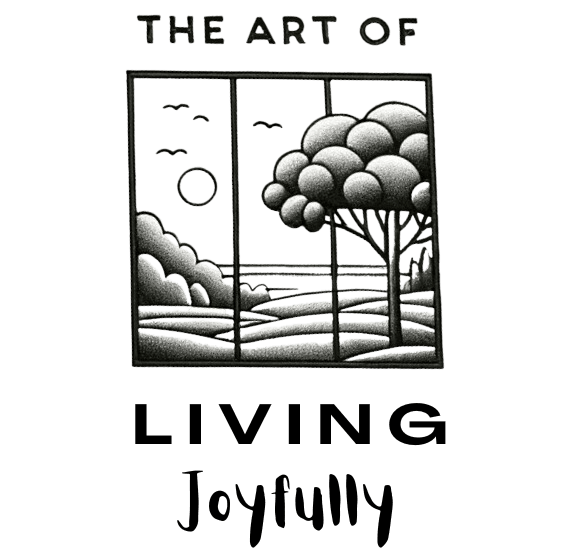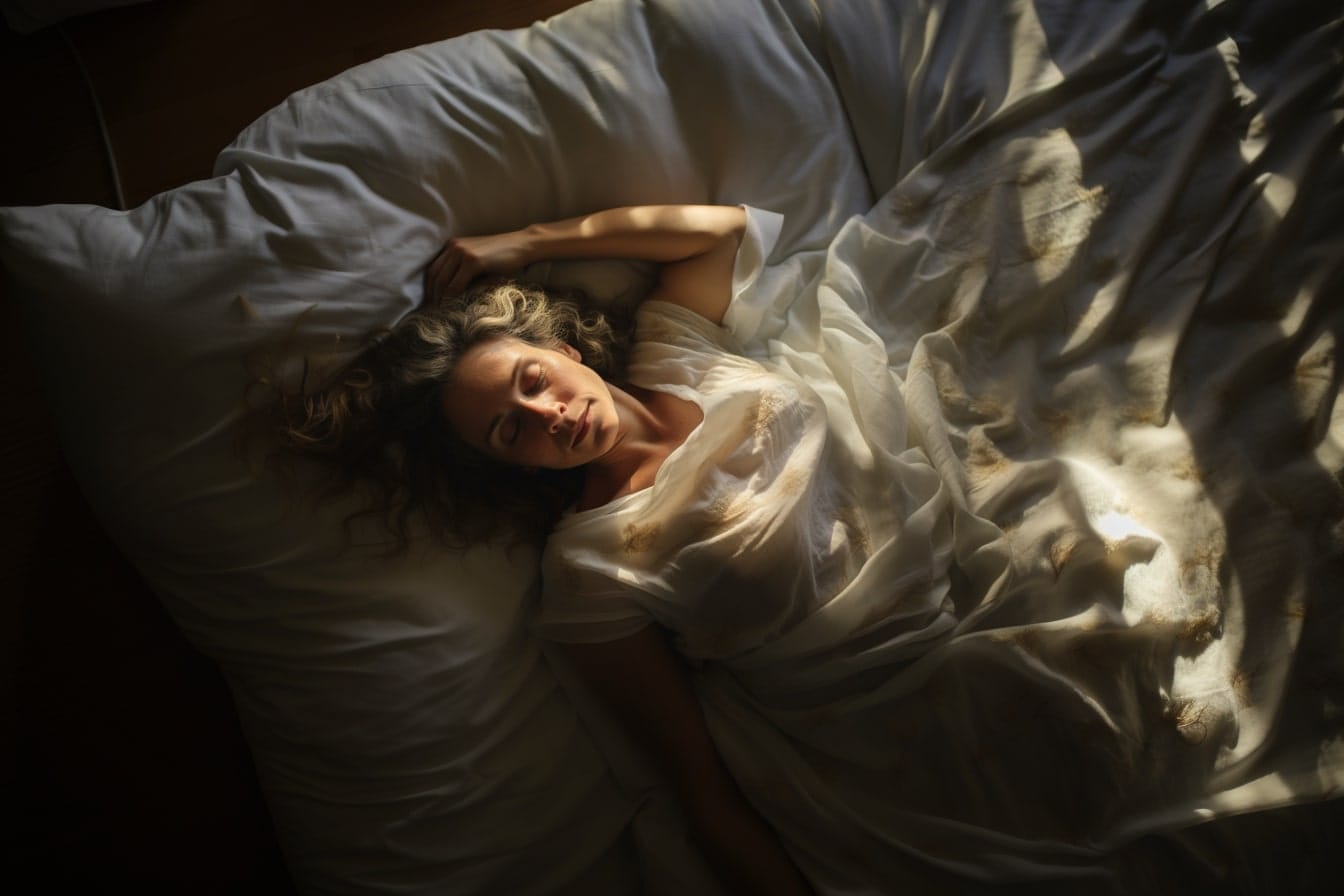Getting a Good Night’s Sleep After 50: Natural Remedies for Better Sleep
As we get older, a restful night of sleep can become more elusive. Many adults over 50 struggle with insomnia and other sleep disturbances that prevent them from getting the recommended 7-9 hours of quality sleep per night [1].
Lack of sleep after 50 can be detrimental to your health. Poor sleep is linked to issues like weight gain, impaired cognitive function, a weakened immune system, increased inflammation, and even earlier mortality [2, 3]. Sleep deprivation exacerbates age-related cognitive decline and contributes to the development of neurodegenerative diseases like Alzheimer’s [4].
Insomnia doubles your risk of developing depression and is associated with cardiovascular disease, stroke, diabetes, and cancer [5,6]. Even one night of lost sleep can result in daytime drowsiness and temporary cognitive impairment [7]. The consequences of untreated sleep disorders are far-reaching.
The good news is that there are proven natural remedies that can help you fall asleep faster, sleep more soundly, and wake up refreshed.
Establish a Relaxing Pre-Bed Routine
Having a consistent pre-bed routine signals your brain that it’s time to start winding down for sleep. Try to go to bed and wake up at the same time every day, even on weekends, to regulate your circadian rhythm [8]. The hour before bed should be dedicated to relaxing activities to transition your body into “sleep mode.”
Take a warm bath, practice light yoga stretches, meditate, or read a book [9]. Dim the lights in your home and avoid screens during this time, as blue light exposure can disrupt melatonin production [10]. Being intentional about relaxing before bed makes it easier to fall and stay asleep.
Optimize Your Sleep Environment
Your bedroom environment significantly impacts sleep quality [11]. Keep your room cool at around 65 degrees Fahrenheit [12]. Insulate your windows or invest in blackout curtains to block outside light and create a dark sleep sanctuary. Use a white noise machine or earplugs to mitigate disruptive noises [13].
Your mattress and pillows also affect sleep comfort. Replace your mattress every 7-10 years or if it’s no longer providing proper support [14]. Choose pillows that keep your head and neck aligned with your spine while lying on your side or back [15]. Creating an optimized sleep haven helps you fall asleep faster and wake up less throughout the night.
Limit Caffeine, Alcohol, and Big Meals Before Bed
Caffeine is a stimulant that can stay in your system for 6-8 hours, so limit coffee, tea, soda, and chocolate later in the day [16]. Consuming caffeine 6 hours before bed can reduce total sleep time by 1 hour [17].
Alcohol causes sleep disruptions later in your sleep cycle, so have your last drink at least 2 hours before bed [18]. Large meals require heavy digestion that can make falling and staying asleep difficult. Eat lighter dinners and finish eating at least 2-3 hours before lying down.
Stay Physically Active
Regular exercise helps regulate sleep cycles, leading to higher quality sleep [19]. However, intense or vigorous workouts too close to bedtime can have the opposite effect [20]. Get your exercise in the morning or early afternoon. Activities like yoga, pilates, and tai chi are ideal in the evenings since they encourage relaxation [21]. Even light walking after dinner benefits sleep. Just try to finish exercising at least 2 hours before bed for best results.
Practice Relaxation Techniques
Quieting your mind before bed is key for falling asleep faster [22]. Meditation, deep breathing, and guided imagery help reduce stress and racing thoughts [23]. Listen to soothing music or ambient sounds of nature. Enjoy a warm bath infused with lavender or chamomile essential oils [24]. Essential oil diffusers, weighted blankets, or low-light salt lamps also cultivate relaxation. Reading is another calming pre-bed activity.
Limit Daytime Napping
While the occasional power nap can provide an energy boost, daytime sleeping can make it tougher to fall asleep at night [25]. Limit naps to 20-30 minutes in the early afternoon. Any longer or too close to bedtime can negatively impact your sleep cycles [26]. However, if you feel nodding off during the day, it likely means you need more sleep at night. Use naps as a gauge for whether your nightly sleep needs adjusting.
Consider Natural Sleep Aids
Some natural supplements can encourage better sleep, either alone or in combination with other remedies. Melatonin helps regulate sleep cycles and is most beneficial when taken 1-2 hours before bed [27]. Valerian root also induces drowsiness [28]. Chamomile tea contains apigenin, an antioxidant that initiates sleepiness [29]. Tart cherry juice contains melatonin and tryptophan [30]. Magnesium supplements can relax muscles for better sleep [31]. Always consult your doctor before trying natural sleep aids.
Talk to Your Doctor If Sleep Issues Persist
If you still struggle to sleep after trying these natural remedies, speak to your doctor. They can check for underlying health issues contributing to your insomnia, like sleep apnea, anxiety, chronic pain, or thyroid disorders [32]. Your doctor may recommend sleep-focused cognitive behavioral therapy, which helps replace sleep-disrupting thoughts with healthier sleep habits [33]. Don’t lose hope if you aren’t sleeping well after 50 – there are solutions available.
In summary, sleep only becomes more crucial as we age. Establishing healthy sleep habits, optimizing your environment, reducing disruptors, relaxing, and trying natural aids can help you achieve more restorative sleep after 50. Consistency with these practices is key. Prioritize your sleep, and you’ll likely feel healthier, happier, and more energized.
Sources:
[1] https://www.cdc.gov/sleep/about_sleep/how_much_sleep.html
[2] https://www.ncbi.nlm.nih.gov/pmc/articles/PMC3768102/
[3] https://www.nhlbi.nih.gov/health-topics/sleep-deprivation-and-deficiency
[4] https://www.health.harvard.edu/blog/little-sleep-big-problem-link-between-sleep-cognitive-decline-201302266030
[5] https://www.sleepfoundation.org/physical-health/mental-health-and-sleep
[6] https://www.hopkinsmedicine.org/health/wellness-and-prevention/insomnia-more-than-just-loss-of-sleep
[7] https://www.ncbi.nlm.nih.gov/pmc/articles/PMC2656292/
[8] https://www.sleepfoundation.org/sleep-hygiene/bedtime-routine
[9] https://www.sleepfoundation.org/sleep-hygiene/remedies-help-you-fall-asleep
[10] https://www.sleepfoundation.org/light-and-sleep
[11] https://www.sleepfoundation.org/bedroom-environment
[12] https://www.sleepfoundation.org/bedroom-temperature
[13] https://www.sleepfoundation.org/noise
[14] https://www.sleepfoundation.org/mattress-information/mattress-life-expectancy-and-warranty
[15] https://www.sleepfoundation.org/pillows/best-pillows
[16] https://www.sleepfoundation.org/nutrition/caffeine-and-sleep
[17] https://academic.oup.com/sleep/article/38/6/843/2454076
[18] https://www.sleepfoundation.org/nutrition/alcohol-and-sleep
[19] https://www.ncbi.nlm.nih.gov/pmc/articles/PMC2929771/
[20] https://www.sleepfoundation.org/physical-activity/best-time-of-day-to-exercise-for-better-sleep
[21] https://www.ncbi.nlm.nih.gov/pmc/articles/PMC3903485/
[22] https://www.ncbi.nlm.nih.gov/pmc/articles/PMC5682113/
[23] https://www.sleepfoundation.org/sleep-hygiene/relaxation-techniques-for-better-sleep [24] https://www.healthline.com/health/healthy-sleep/fall-asleep-fast#10.-Take-a-warm-bath
[25] https://www.sleepfoundation.org/napping/napping-adults
[26] https://www.sleepfoundation.org/excessive-sleepiness/health-risks/napping
[27] https://www.sleepfoundation.org/melatonin
[28] https://www.sleepfoundation.org/natural-sleep-aids/valerian
[29] https://www.sleepfoundation.org/natural-sleep-aids/chamomile
[30] https://pubmed.ncbi.nlm.nih.gov/22038497/
[31] https://www.healthline.com/nutrition/magnesium-and-sleep#TOC_TITLE_HDR_3
[32] https://www.cdc.gov/sleep/about_sleep/sleep_hygiene.html
[33] https://www.mayoclinic.org/diseases-conditions/insomnia/in-depth/insomnia-treatment/art-20046677







